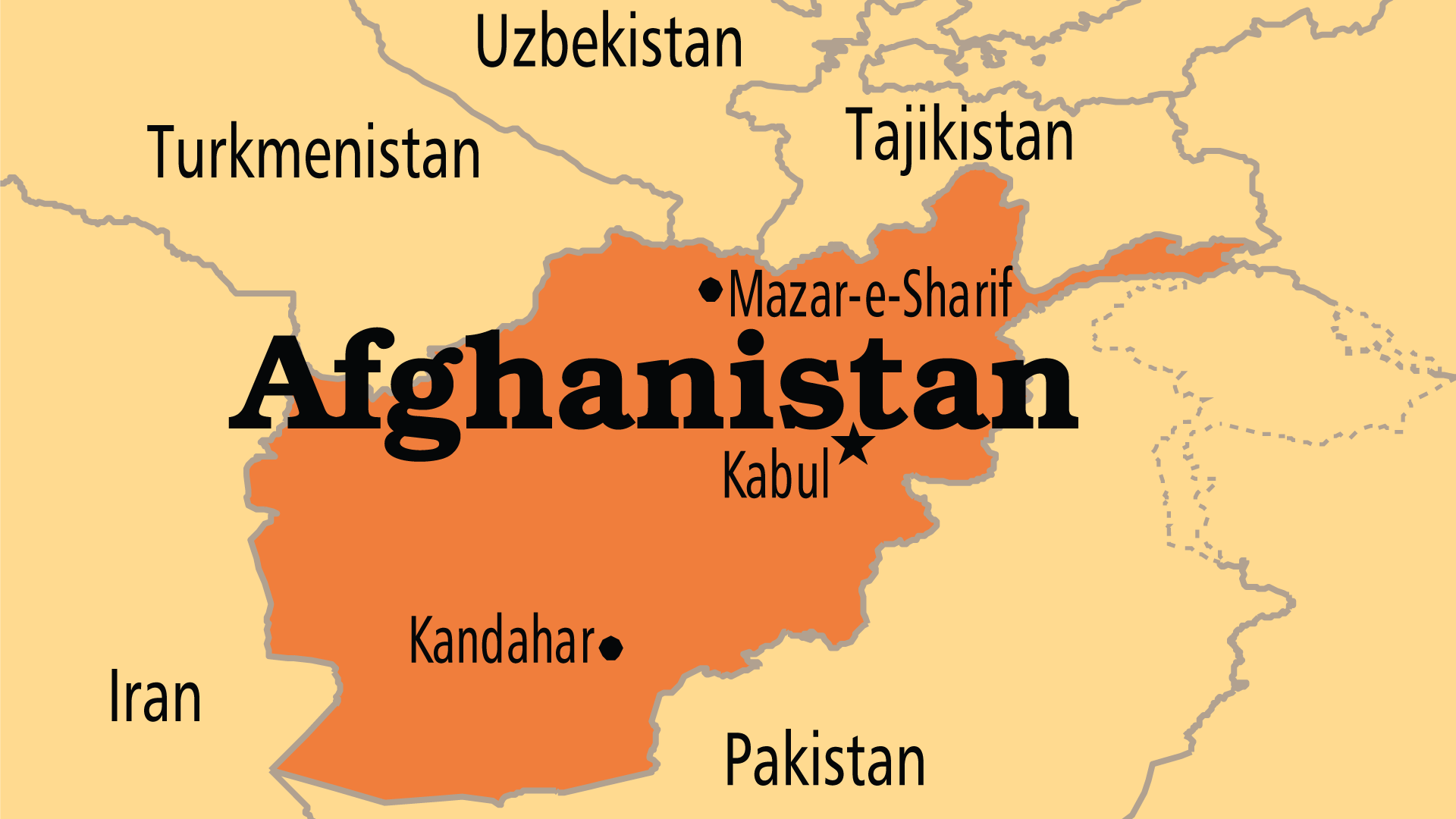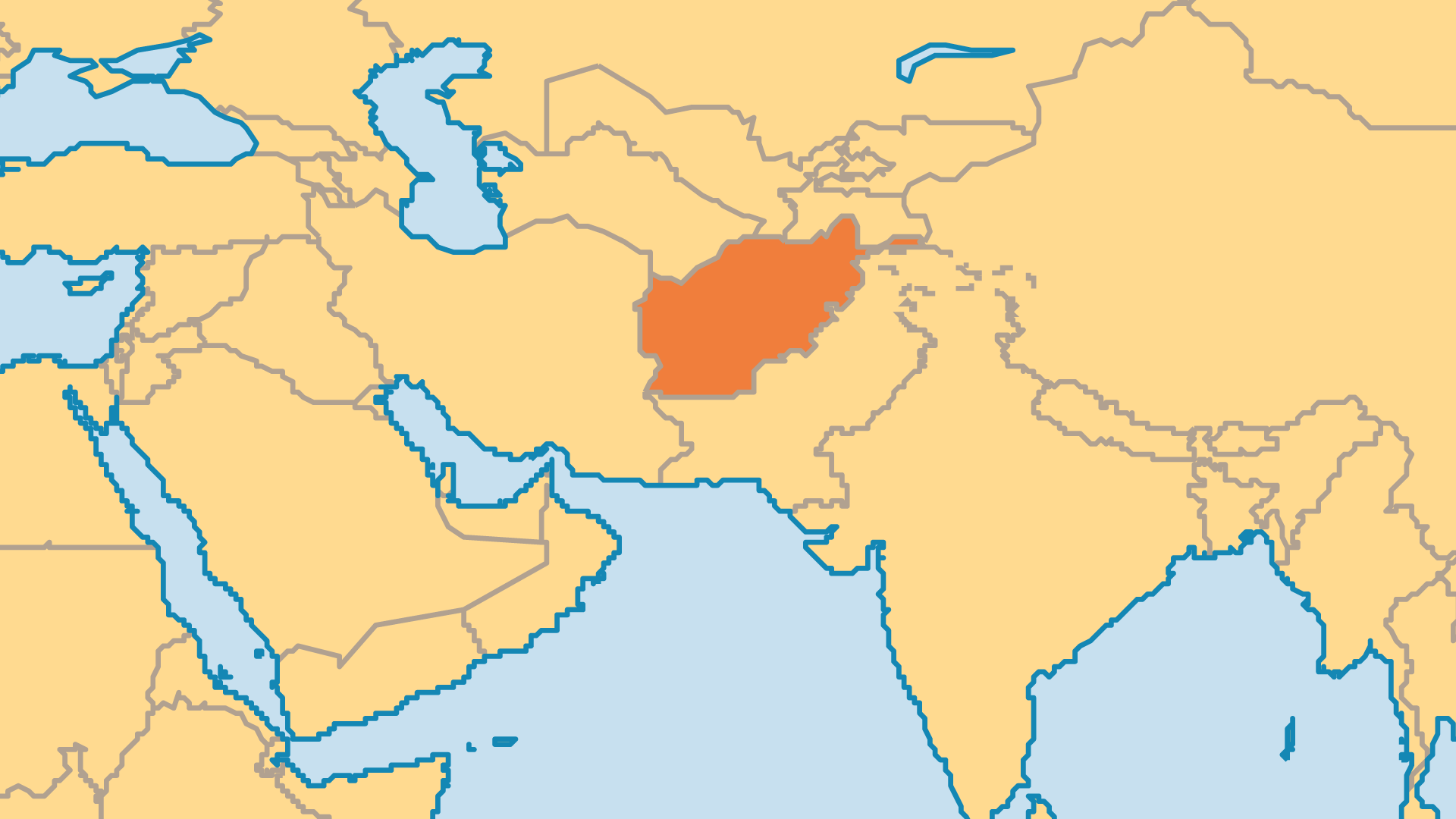Pray today
The re-conquest of Afghanistan by the Taliban in 2021 came as a shock to many. These events led to the suspension of humanitarian aid to the needy people of Afghanistan, the reintroduction of much harsher Islamic laws, the flight of millions of Afghans from Taliban rule, the intensified persecution (and even manhunt) of Christians, and the emboldening of Islamist movements elsewhere against what they perceive as a weak and failing Western world. The aftermath of the 2023 earthquake, the gripping poverty and hunger, and current economy crisis also intensify the suffering. There is so much to pray for; above all, pray that God preserve the lives of Afghans so that they might hear the good news of Jesus.
More
There are many social and health needs in Afghanistan:
- Health risks. Afghanistan is the world's most dangerous place for a child to be born. Infant mortality rate is among the world's highest. Many causes of death are preventable (diarrhoea, cholera, dysentery and pneumonia), but lack of health care and clean water (78% do not have regular access to clean water) causes many deaths. Refusal to allow women to receive medical care from men causes high maternal mortality rates.
- The disabled. There are an estimated one million people suffering with disabilities, mostly with damaged or destroyed limbs as a result of war. In remote areas, many are still being injured by landmines. This is one of the world's highest proportions of disabled people, in a nation with little provision for their care or rehabilitation.
- The growth of poppies which produce the drug opium (which can be made into morphine, then heroin). In a country with few sources of revenue, growing poppies as a cash crop is a lucrative option. It has accounted for up to one-third of GDP at points, and has heavily financed the Taliban in the past. Opium and its derivative drugs are forbidden in Islam, bring destruction to its users, and empower and enrich ruthless drug cartels. Yet, until there are feasible alternative sources of income and reduced demand, this activity will continue. Pray for God to bring solutions when man’s wisdom has failed.
Development issues for prayer:
- Human development is equally vital. From 2001-2021, infant and maternal mortality had been steadily dropping, and the enrolment of children – even girls – in school had been increasing. Lifespans were also increasing. What will happen to human development under the Taliban remains to be seen. Micro-enterprise initiatives that give opportunities to start small businesses, earn a respectable living, and provide for others will remain an important part of Afghanistan’s economic development, regardless of who holds power. Afghanistan's 40 million people still need to receive health care and some form of education, to earn a living, and to eat.
- Christian involvement in aid and development. From 1966, a number of Christian relief and development agencies ministered to the blind, maimed, sick, deprived, illiterate and needy, in the name and Spirit of the Lord Jesus. Many Christians - most of them in humanitarian capacities - worked to serve the people of Afghanistan. Practical demonstrations of Christian care and love impress many Afghans, breaking down prejudices and preparing hearts for the gospel. Some ministering in Christ’s name were kidnapped, others martyred, and entire organisations fled or withdrew from Afghanistan – a sadly repeated tragedy for a country with so many needs. Pray for God to re-open this land so that Christians might once again bring help and hope to its people.
Afghanistan is one of the least reached countries in the world. There are 48,000 mosques but not a single church building. Pray for the 70 unreached peoples of this land, especially for the following groups:
- Pashtuns. They number over 40% of the Afghan population and are politically dominant. They comprise the bulk of the Taliban. Pashtun on both sides of the Afghanistan-Pakistan border comprise what has been called the largest Muslim tribal society in the world - as many as 46 million people in over 30 major sub-tribes. Christians among them remain few, though urban, educated Pashtuns in exile have shown some response. Pray that multitudes might be released from fear, prejudice, the strongholds of Islam and pride in pashtunwali (their tribal code of honour); there is evidence of an intense spiritual battle for breakthrough among this people. But should breakthrough come, it could transform both Afghanistan and Pakistan, and indeed the entire Muslim world!
- Tajiks in the northeast. Speaking Dari (a form of Persian), they are closely related to the Pashtuns. Some Tajik groups were among the last people to resist the Taliban, yet they remain over 99% Muslim. Pray for their spiritual freedom.
- Hazaras, Shi'a Muslims of Mongol descent. Being a Shi'a group, they have been severely persecuted through the years and were even massacred by the Sunni Taliban. They have demonstrated greater openness to the gospel in recent years.
- Uzbeks and Turkmen of the north have shown encouraging responsiveness as refugees in other lands, but as in their namesake countries, only a tiny proportion are believers.
- The six Aimaq tribes of the west, of nomadic background, and the Baloch and Brahui of the south. There are very few if any believers from these isolated groups.
- The nine Nuristani tribal groups in the mountains north and east of Kabul. They speak five languages and 16 dialects; many of these are mutually unintelligible.
- The five Ismaili Muslim Pamir people groups and the Kyrgyz living in the far northeast of Afghanistan, along the high Pamir Mountain range. These people groups are isolated in small valleys, far from good roads. Ismaili Muslims tend to be more open to the good news, and a small community of believers was birthed some years ago. Praise God for good distribution of gospel audio materials among the Kyrgyz.
- The numerous Dardic people groups near the volatile border region with Pakistan. The largest of these is the Pashai, numbering in the hundreds of thousands of people.
- The nomadic Gujar and Jugi/Kuchi/Ghorbat people groups.
Afghan believers. It is impossible to know how many followers of Christ there are in Afghanistan. Much of the hard-won progress in evangelization will have been undone by the 2021 Taliban takeover; the majority of Christians almost certainly fled the country for fear of their own lives. Yet, even amidst the oppression and persecution, stories are emerging of fearless witnesses continuing to share the gospel, and of miraculous encounters that lead people to put their faith in Jesus. Pray for God to build His Church and demonstrate that even the harsh rule of the Taliban cannot stop the advance of His Kingdom. Pray also for the multiplication of the groups of Afghans who follow Christ outside their own homeland – may God build His Church among the Afghan diaspora!
The need for the Scriptures. After decades of work, the whole Dari Bible is finally available (UBS); around 70% can understand this language. The entire Bible is available in Northern Pashto and the NT in Southern Pashto. Praise God for translation progress in Hazaragi (Gospel of Luke), Kyrgyz (audio NT), Southern Uzbek (Genesis, Exodus and Matthew, with the full NT in progress) and eight other languages either ongoing or beginning translation work. Pray also for the entry and distribution of God's Word into this closed land; the Taliban are obviously opposed to it!
More Information
- Get all of this content and daily notifications in our free mobile app. Download here ›
- Sign up for a daily e-mail that gets you the featured prayer point of the day straight to your inbox.
- This content is a curated selection of points from our book, Operation World. Find out more about it and all the rest of Our Publications ›
Content taken or adapted from Operation World, 7th Edition (2010) and Pray for the World (2015). Both books are published by InterVarsity Press. All rights reserved.


